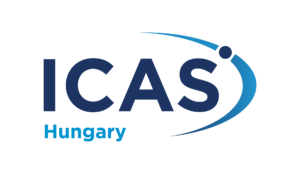The Return on Investment of Employee Assistance Programs
Employee needs
According to workplace stress researches, every second Hungarian employee regularly experiences workplace stress. More than ⅓ of workers say their work has a bad effect on their health, 28% of them can also associate their existing health problem with their work. Most of them think they can deal with stress on their own. The problem is exacerbated by the fact that it is difficult or almost impossible to find out in a work environment if employees are in trouble and in need of help, but even if it is detected, their close community often does not have the appropriate means to provide professional help.
Work-related stress is becoming an increasingly serious problem in the world every year. The European Union and the World Health Organization (WHO) are also giving priority to what is now a public health problem, which is otherwise causing huge losses worldwide, both due to human exhaustion and reduced economic performance. The business costs of this are staggering: the WHO estimates that poor mental health costs $1 billion in global economic productivity every year. According to a Canadian survey, 30 out of every 1,000 employees are absent every week for mental health reasons. Overall, the decrease in workplace productivity associated with mental illness amounts to $6.3 billion annually in Canada. Poor mental health exacerbates the negative effects and health costs of other chronic diseases, such as cardiovascular disease or asthma.
Legislation
Legal steps have already been taken in Hungary to promote the management of stress at work. The amendment of the act XCIII of 1993 on occupational safety and health in force from 1st January 2008 introduces the employer’s role in dealing with the so-called psychosocial risk factors, while also defining the concept of this factor. According to the statutory provision, a psychosocial risk is a set of effects (conflicts, work organization, work schedule, precarious employment, etc.) affecting the employee at work, which may harmfully affect the employee’s health and mental condition, thus due to their specific consequences work accidents, stress-related or psychosomatic illnesses may occur.
One of the most basic tools for directly reducing psychosocial risks is the Employee Assistance Program (EAP), which is available anonymously 24/7, day and night, to employees in matters concerning them, be it a practical workplace or lifestyle issue. or even dealing with a serious crisis. In many cases, there are mental causes behind physical symptoms, which can surface in an indirect way, such as absenteeism at work or physical illness. Therefore, it is cardinal to treat prolonged, mental or life management problems professionally and in time.
We can highlight from the many benefits of the EAP that it contributes to maintaining good health, resolving family problems, managing stress or clarifying financial and legal issues, and does so extremely quickly and professionally. Immediate assistance helps workers in their problems affecting them not to escalate, but to be resolved as soon as possible. Those who live alone or can’t turn to anyone with their difficulties can certainly support from EAP if there is a problem. Sometimes this kind of help can even save lives
What does the employer get?
The EAP contributes to reducing corporate risks, can increase productivity, reduce turnover, employee absenteeism, and can increase employee engagement.
According to a 2019 study by Deloitte among Canadian firms, the median annual return on investment (ROI) for mental health support programs is 1.62 Canadian dollars for seven firms that provided data for at least three years. For companies where the program has been in place for more than three years, the annual median return on investment (ROI) is 2.18 Canadian dollars. (ROI return shows that if you invest 1 Canadian dollar in mental health support program, how many Canadian dollars you gain in return.)
Return on investment (ROI) is a common business metric that is typically used to monitor returns on new business investments, development and investment projects. Deloitte’s research, which examined the payback of mental health support programs through the consistent application of economic requirements and tools for ROI calculation, may have a transformational impact on how corporate world looks at such programs. Looking at the results of the analysis, the surprising element is not that these expenses pay back, but the extent of this, which is a significant order of magnitude, moreover, continues to increase over a period of more than three years. In the last decade, it is a joyful development that as a result of research conducted by Deloitte and other similar economic analysis, quite some management have transferred mental health programs from the category of ‘nice-to-have’ benefits to employer responsibility involving expenses with a good pay back.
Overall, the Employee Assistance Program (EAP) is one of the most important and essential tools and investments for employers to offer a modern solution to address psychosocial risks, such as work-related stress, that pays off: for both the employee and the employer.
[1] http://medicalonline.hu/eu_gazdasag/cikk/minden_masodik_kieso_munkanapert_a_stressz_felelos
[2] http://www.munkahelyistresszinfo.hu/a-munkahelyi-stressz-merese/a-pszichoszocialis-kockazat-jogi-szabalyozasa/
[3] https://www2.deloitte.com/global/en/insights/topics/talent/workplace-mental-health-programs-worker-productivity.html







